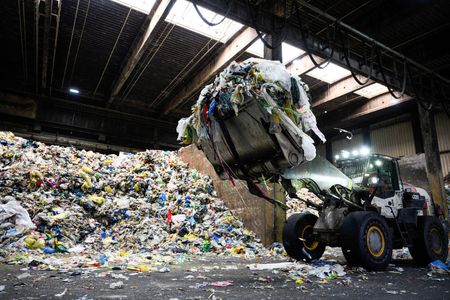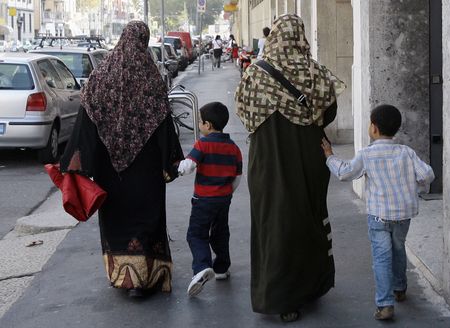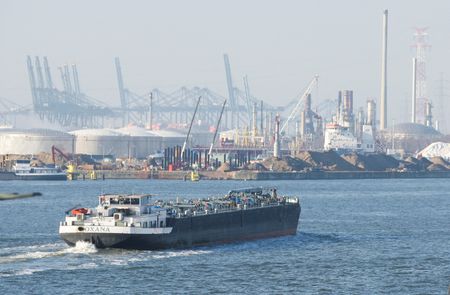BRUSSELS (Reuters) -Europe’s plastics industry faces plant closures at an accelerated rate and falling further behind global rivals in recycling without urgent action, sector lobby group Plastics Europe said on Wednesday.
The group said the European Union should recognise plastics was a strategically vital industry given its importance to sectors such as defence, car-making and agriculture.
It needs to act now to address crippling energy costs, climate-related taxes and high feedstock prices, as well as the impact of U.S. tariffs, Plastics Europe said.
Rob Ingram, CEO of INEOS Olefins and Polymers Europe and a Plastics Europe steering board member, said the EU’s plastics industry was at a “cliff edge” and struggling to be competitive.
“There’s a lot of debate to be had as to what is the right direction,” he said. “The first ask has to be: don’t let it get worse while you’re thinking about it,” he said, calling for the EU to pause planned reductions of free carbon emission allocations.
European production volumes inched up 0.4% in 2024 after a record 7.6% contraction in 2023, but turnover fell 13% last year and Europe’s global market share dropped to 12%, it said.
By contrast, global plastics production increased 4.1% in 2024, with Asia making well over half and China just over a third of the world’s plastics.
Europe’s past leadership in recycled plastics was also being eclipsed, with EU production flat in 2024 and Chinese production now nearly double Europe’s.
Europe’s plastics industry needs to cover the release of global-warming gases created in production by buying emission allowances.
U.S. producers, already with a clear advantage in energy and input costs, would be able under the U.S.-EU deal to export to the EU market at zero duties, while shipments the other way would be hit by 15% import tariffs.
(Reporting by Philip BlenkinsopEditing by Ros Russell)











